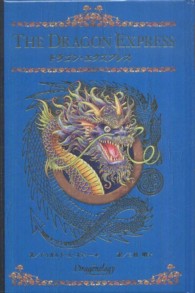- ホーム
- > 洋書
- > 英文書
- > History / World
Full Description
The reign of Henry VII is important but mysterious. He ended the Wars of the Roses and laid the foundations for the strong governments of Henry VIII and Elizabeth I. Yet his style of rule was unconventional and at times oppressive. At the heart of his regime stood his new men, low-born ministers with legal, financial, political, and military skills who enforced the king's will and in the process built their own careers and their families' fortunes. Some are well known, like Sir Edward Poynings, governor of Ireland, or Empson and Dudley, executed to buy popularity for the young Henry VIII. Others are less famous. Sir Robert Southwell was the king's chief auditor, Sir Andrew Windsor the keeper of the king's wardrobe, Sir Thomas Lovell, the Chancellor of the Exchequer so trusted by Henry that he was allowed to employ the former Yorkist pretender Lambert Simnel as his household falconer. Some paved the way to glory for their relatives. Sir Thomas Brandon, master of the horse, was the uncle of Henry VIII's favourite Charles Brandon, duke of Suffolk. Sir Henry Wyatt, keeper of the jewel house, was father to the poet Sir Thomas Wyatt. This volume, based on extensive archival research, presents a kaleidoscopic portrait of the new men. It analyses the offices and relationships through which they exercised power and the ways they gained their wealth and spent it to sustain their new-found status. It establishes their importance in the operation of Henry's government and, as their careers continued under his son, in the making of Tudor England.
Contents
Acknowledgements
List of abbreviations
Part I: New Men
1: Caitiffs and villains of simple birth
2: Principles and talents
Part II: Service
3: Council, Court, and Parliament
4: Justice
5: Finance
6: Borderlands, war, and diplomacy
Part III: Power
7: Towns and stewardships
8: Followers
9: Church and churchmen
10: Law and power
11: Families and friends
Part IV: Wealth
12: The profits of power
13: The land market
14: Landlordship
15: Expenditure and status
Part V: Survival
16: The new reign
17: Faith and fortune
18: The making of Tudor England
Bibliography








